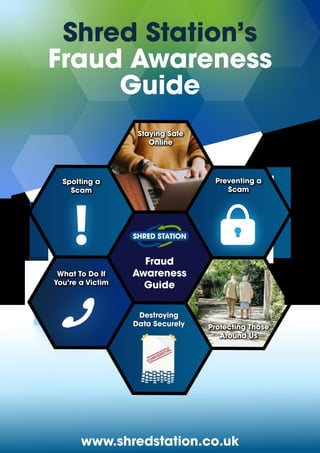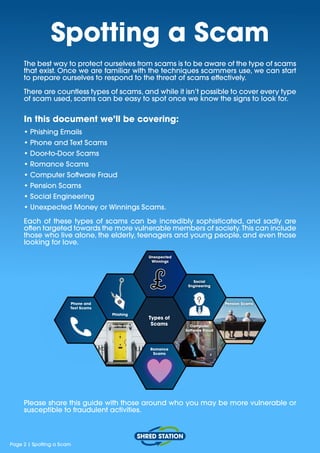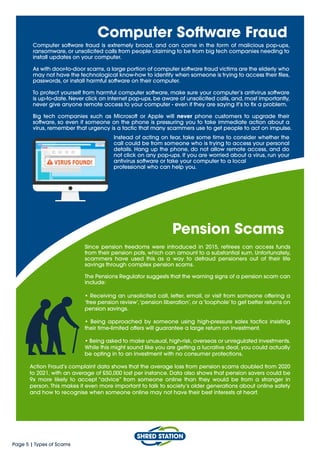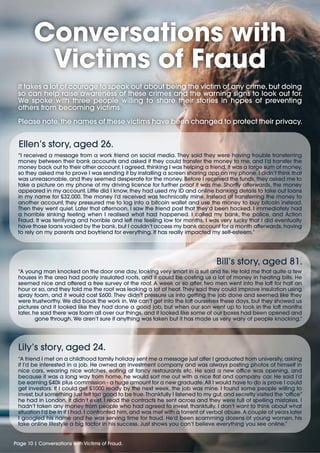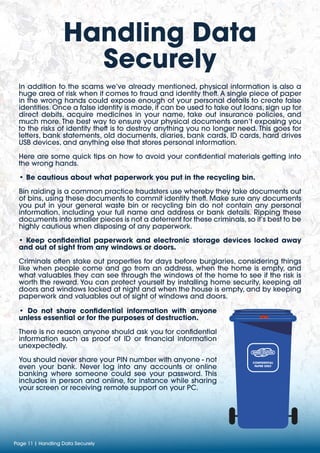The fraud awareness guide from Shred Station educates readers on recognizing and preventing various types of scams, including phishing, phone and text scams, door-to-door scams, and romance scams. It emphasizes the importance of awareness and provides essential tips on staying safe online while protecting personal data. The guide also outlines steps victims should take if they fall prey to scams and stresses the need to share knowledge about these threats, especially with vulnerable individuals.
